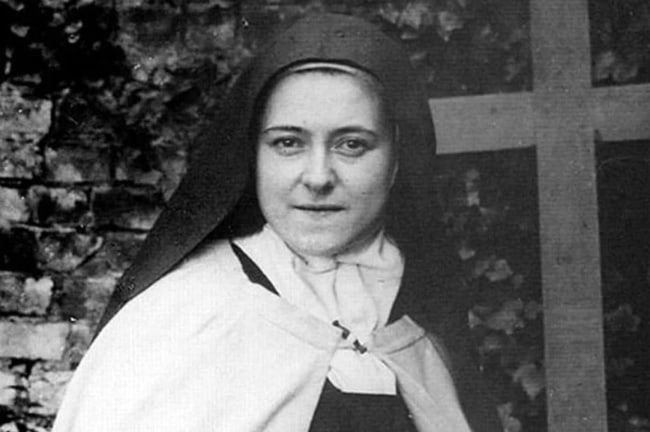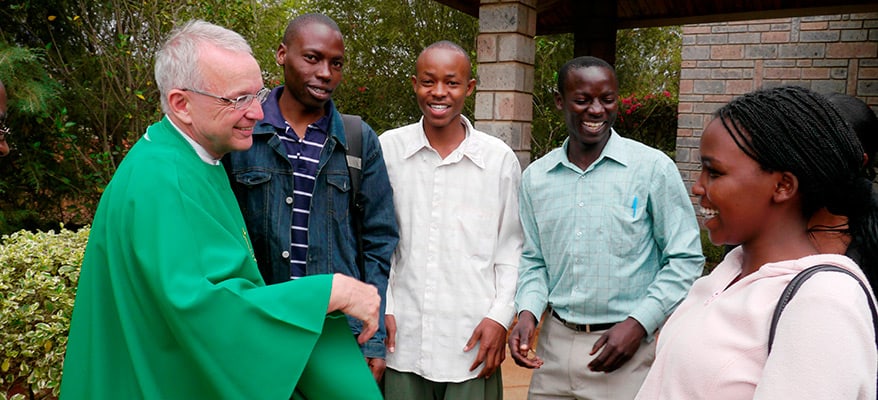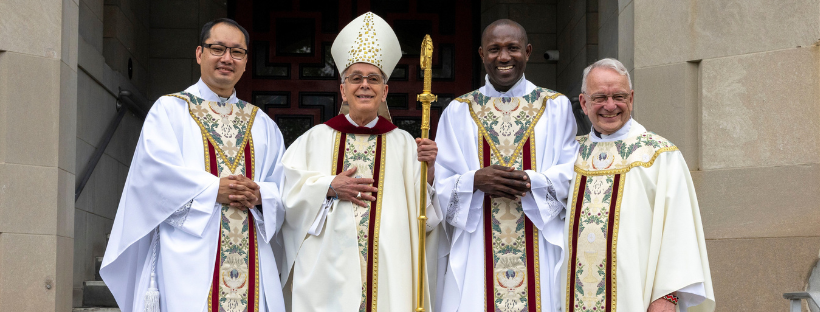In today’s Gospel we hear Jesus saying: “I have come so that they may have life and have it to the full” (Jn 10:10). Reflecting on this passage about the “fullness of life,” I am reminded of a special anniversary the Church is celebrating this year: the 150th anniversary of the birth of Thérèse of Lisieux (1873-2023). This “little flower” has helped many appreciate what “fullness of life” can mean.
Brief Life. Marie Franҫoise Thérèse Martin was born in Alenҫon, France on January 2, 1873. When she was fifteen years old and too young to enter the Carmelite Monastery, she pleaded her case before Pope Leo XIII; eventually permission was granted. Two of her sisters had preceded her in Carmel. Her exemplary parents Zélie and Louis Martin, the first couple ever canonized together in the Church’s history, were declared saints by Pope Francis on Mission Sunday, October 18, 2015. The final years of Thérèse’s short life were spent within the cloister of an obscure convent. She died of tuberculosis on September 30, 1897, at the tender age of twenty-four.
Inspiring Autobiography. Thérèse would have probably attracted little notice, except for her posthumously published autobiographical manuscript, The Story of a Soul. This work, written out of obedience to her superior, describes her experience and deep insights into the spiritual life. Essentially, the work is about the path to holiness in everyday life, to true “fullness of life.” Thérèse was canonized on May 17, 1925, only twenty-eight years after her death. On December 14, 1927, Pope Pius XI proclaimed her the principal patroness, equal to Saint Francis Xavier, of all mission endeavors.
Saint Thérèse did not found a religious order and never went to the missions. However, she understood that what is important in the Christian life is great love and not great deeds. Thérèse, the saint of the “little way,” developed a spirituality of ordinariness, in which one offers each moment and every deed simply and lovingly to God. Her famous title, the “Little Flower,” derives from her self-image as only one among millions of ordinary, little flowers on the hillside, each giving its all in joy and praise to God. Thérèse is a source of deep hope to millions; they find in Thérèse their own spirituality, their “doable” and “livable” pathway of daily sanctification.
Inspiring Wisdom. We listen to brief excerpts from Thérèse’s profound insights. “We can never have too much hope in God. He gives in the measure we ask.” “I love my littleness and my poverty; it is my blind hope in His mercy; this is my only treasure.” “Merit is not to be found in doing much or in giving much, but rather in receiving and in loving much.” “I have always wanted to become a saint…. In spite of my littleness, I can aim at being a saint.” Indeed, Thérèse’s “little way” is a pathway for all of us desiring the “fullness of life.”
James H. Kroeger, M.M.
St. Therese of Lisieux
Lord, through the example, inspiration and
intercession of St. Therese of Lisieux
show me the Little Way that leads to
holiness, simplicity, heaven and you.
Help me rejoice in the everyday and
ordinary events of life, knowing your love and grace
meet me here and everywhere.
You, who fashioned distant galaxies
as well as lilies and hummingbirds,
open my eyes to appreciate your
power and handiwork all around me.
Help me to pray in silence and sound,
in thoughts, prayers and even in nothingness.
Raise my mind to heavenly realms
even as my feet are firmly on the ground
that your reign spread over all the earth.
May each breath I draw me ever
closer to you by drawing me ever closer
to my friends, family and all people
who seek to walk in your ways and
live your love and truth .
Amen.
Prayer by Father Joe Veneroso, M
Photo: Maryknoll Sisters at Selma, March 7, 1965. (Photo courtesy of Maryknoll Mission Archives)




